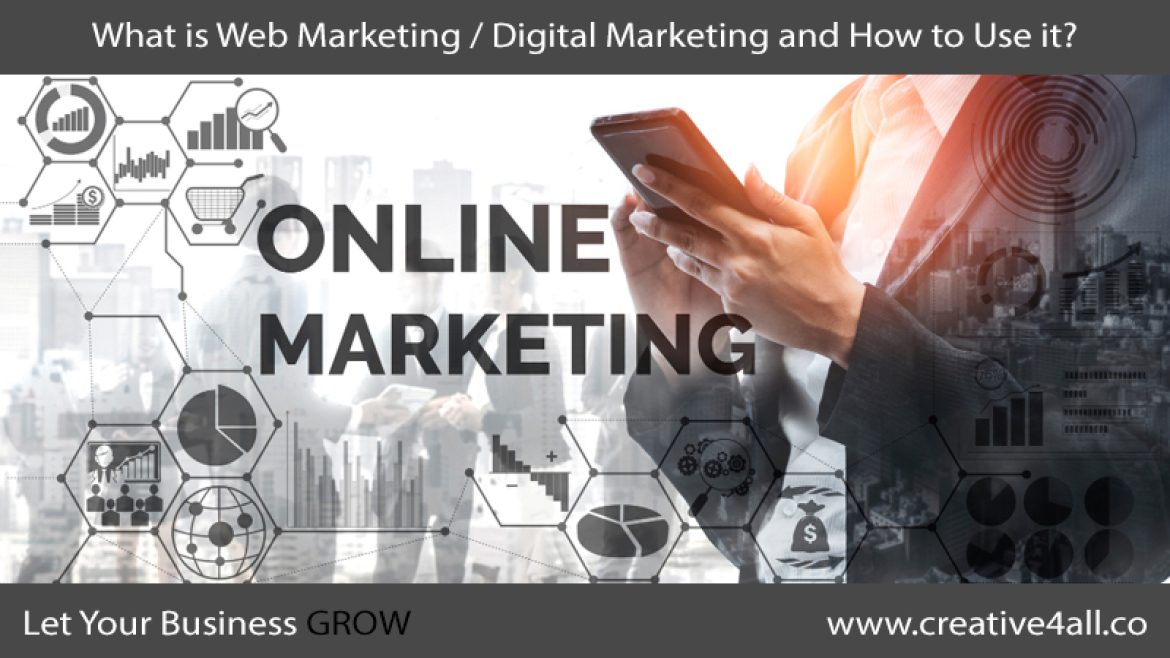
In today’s interconnected world, where the internet reigns supreme, traditional marketing tactics are evolving rapidly to adapt to the digital landscape. Web marketing, also known as digital marketing, has emerged as a cornerstone of modern business growth, offering unparalleled opportunities to reach and engage audiences on a global scale. In this comprehensive guide, we’ll delve into the essence of web marketing, explore its various facets, and outline strategies for leveraging its power to propel your business to new heights.
Understanding Web Marketing
At its core, web marketing encompasses a broad range of strategies and techniques aimed at promoting products or services using digital channels. Unlike traditional marketing, which relies heavily on print media, television, and radio, web marketing leverages the internet and online platforms to connect with target audiences more effectively and efficiently. From social media and search engines to email and content marketing, the possibilities are virtually endless in the digital realm.
Key Components of Web Marketing
1. Search Engine Optimization (SEO): Search Engine Optimization ( SEO ) is the process of optimizing your website to improve its visibility in search engine results pages (SERPs). By targeting relevant keywords, creating high-quality content, and building authoritative backlinks, businesses can increase their organic search traffic and attract qualified leads.
2. Social Media Marketing: Social media platforms like Facebook, Instagram, Twitter, and LinkedIn offer powerful channels for engaging with audiences, building brand awareness, and driving website traffic. Effective social media marketing involves crafting compelling content, fostering community engagement, and leveraging paid advertising to reach target demographics.
3. Content Marketing: Content lies at the heart of web marketing, serving as a vehicle for delivering valuable information, educating audiences, and establishing thought leadership. Whether through blog posts, videos, infographics, or podcasts, businesses can create compelling content that resonates with their target market and drives engagement.
4. Email Marketing: Despite the rise of social media, email remains one of the most effective channels for nurturing leads, retaining customers, and driving conversions. With personalized messaging, targeted segmentation, and automation tools, businesses can deliver relevant content directly to subscribers’ inboxes, fostering long-term relationships and driving revenue.
5. Pay-Per-Click (PPC) Advertising: Pay Per Click or PPC advertising campaigns allows businesses to bid for ad placement on search engines and other digital platforms, paying a fee only when their ads are clicked. With careful keyword targeting, ad copy optimization, and budget management, businesses can maximize their ROI and drive targeted traffic to their website.
Strategies for Success
1. Define Your Goals: Before diving into digital marketing, it’s essential to clarify your objectives and KPIs. Whether you aim to increase brand awareness, drive website traffic, or boost sales, setting clear, measurable goals will guide your strategy and inform your tactics.
2. Know Your Audience: Understanding your target audience is paramount to effective digital marketing. Conduct market research, create buyer personas, and analyze customer data to gain insights into their needs, preferences, and behavior online.
3. Create Compelling Content: Content is king in the digital realm, so invest in creating high-quality, relevant content that resonates with your audience. Whether it’s blog posts, videos, or social media updates, aim to provide value, solve problems, and engage your audience authentically.
4. Optimize for Search Engines: Implement Search Engine Optimization ( SEO ) best practices to improve your website’s visibility and rank higher in search engine results. Conduct keyword research, optimize on-page elements, and earn backlinks from reputable sources to enhance your organic search presence.
5. Engage on Social Media: Leverage social media platforms to connect with your audience, share valuable content, and foster meaningful relationships. Engage in conversations, respond to comments and messages, and humanize your brand to build trust and loyalty among followers.
6. Utilize Email Marketing: Build an email list of subscribers and leverage email marketing campaigns to nurture leads and drive conversions. Segment your audience, personalize your messages, and provide valuable incentives to encourage engagement and loyalty.
7. Measure and Optimize: Continuously monitor your web marketing efforts, track key metrics, and analyze data to identify trends and opportunities for improvement. Test different strategies, iterate on what works, and optimize your campaigns to maximize results and Return on investment ( ROI ).
Conclusion
Digital marketing offers a vast array of opportunities for businesses to connect with audiences, drive engagement, and achieve their marketing objectives in the digital age. By embracing key strategies and leveraging the power of digital channels, businesses can establish a strong online presence, reach new heights of visibility, and drive sustainable growth in today’s competitive marketplace. Embrace the power of web marketing, and unlock the full potential of your business in the digital realm.
If you need any help in Digital marketing, our expert team in Creative 4 All is always ready to assist you. We are ready to help you at any time. Just contact us!





